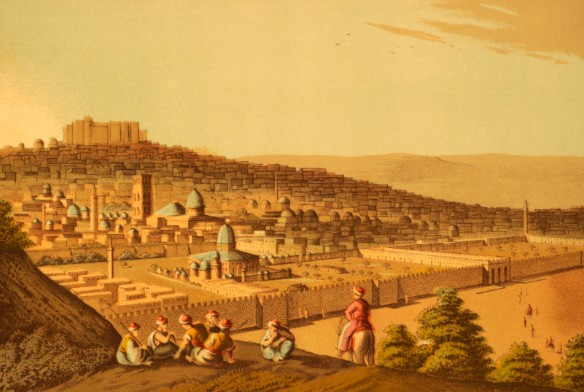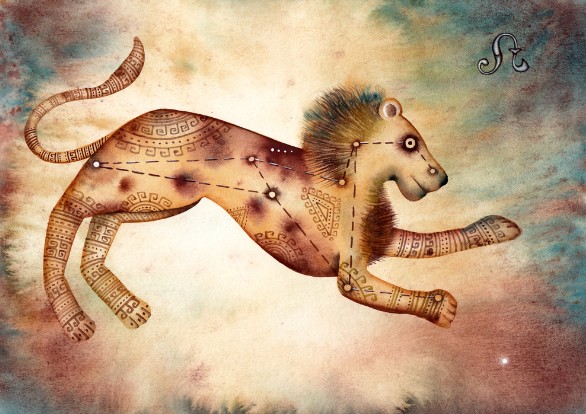Facts in Judaism
Menachem Av: From Mourning to Comfort, From Exile to Redemption
Exploring the dual nature of a month marked by tragedy, transformed by hope, and destined for consolation

- When the months are counted from Creation, the Jewish month of Menachem-Av is the eleventh month of the year. When the months are counted according to the Torah's count that begins with the Egyptian exodus, it is the fifth month of the year.
- The month of Av is not mentioned by this name in the Torah. In Assyrian, it was called "A-bu," and some people explain that this is an abbreviation of the term "Abu Sarni" which means the month of crops.
- In the ancient agricultural calendar found in Gezer, this month was called "Yerach Kayitz" (the month of summer) since it marked the end of the summer season.
- Josephus notes that this month was called “Saba,” which apparently means "lion" in Arabic, and refers to the zodiac sign of the month.
- This month contains the only death date explicitly recorded in the Torah - the first day of Av, when Aaron the kohen gadol (high priest) passed away.
- In the period when the new month was consecrated by the Beit Din (Jewish court), messengers were dispatched in the month of Av so the people would know when to fast in commemoration of the destruction of the Temple (which is commemorated
- The month of Av was once a month of joy and abundance that marked the time when crops were gathered, grapes were harvested, and summer fruits ripened. However, it was transformed into a month of calamity on account of five tragic events that occurred: the decree that our forefathers would not enter the Land of Israel, the destruction of both the First and Second Temples, the fall of the city of Beitar, and the plowing of Jerusalem.
- During this month, the mourning customs observed during the Three Weeks intensify and reach their peak on the "Fifth Fast" (the Ninth of Av), which commemorates the destruction of the Temple.

- On account of the tragedies associated with this Av, the Sages said: "When Av enters, we diminish joy." The prefix "Menachem" (Comforter) was added to the month of Av in the hope that our mourning will turn to joy and we will merit the redemption with the arrival of Mashiach (who will be born in this month). As the prophet Zechariah stated, comfort will begin during this month.
- Some explain that the Hebrew word "Av" alludes to the initials of Edom and Babylon, the two kingdoms associated with the destruction of the First and Second Temples.
- On the fifteenth of Av, the Festival of the Vineyards is celebrated. The Sages taught that “there were no days as joyous for the Jewish people as the fifteenth of Av and Yom Kippur.” On this day, the daughters of Jerusalem would go out in borrowed white garments and dance in the vineyards.
- The month of Av is always thirty days long.
The Zodiac Sign of the Month
- The zodiac sign of Menachem Av is Leo (the lion).
- The month's sign is symbolic of the Jewish people who, despite the hardships they encounter, will strengthen themselves like lions, "Behold, a people rises like a lioness, and like a lion it raises itself," and rise from destruction to redemption.
- Some explain that the month's zodiac alludes to Samson's strength, who tore apart a young lion during the grape harvest in Timnah in the month of Av.
- In the month of Av, grapes are harvested and vegetables are gathered. It is hot outside, as the Sages note: "The end of summer is harsher than summer itself," although one can sense that autumn is just around the corner.
 Lion zodiac sign
Lion zodiac signThe Month of Menachem Av in Hasidism
Though many Jewish tragedies occurred during this month, the month of Av is primarily a month of consolation. Only the first several days of the month are days of sorrow and mourning for the destruction of the Temple and the exile. For the remainder of the month, immediately after the Ninth of Av, we are encouraged by Hashem’s double consolation: "Comfort, comfort My people," and the echo of redemption can be sensed in the distance.
It is hardly incidental that the month is referred to as "Menachem Av,” which can be translated literally as “The Father Comforter.” This unique name indicates that Hashem, who is like our Father, comforts His children and shows them the path toward the approaching salvation.
What is the nature of the consolation that Hashem offers the Jewish people? Usually, one comforts an individual who has suffered a calamity. Though the comforter cannot save him from his distress, he offers words of comfort to encourage him and appease and alleviate his sorrow. In our case though, this isn’t relevant.
Nachum Ish Gamzu would famously say "This too is for the good," which means that suffering should be accepted with joy, and we must thank Hashem for the bad as well as the good. This expression is different than other formulations that justify Hashem’s Divine judgment, such as "everything Hashem does, He does for good." When we declare "this too is for the good," we are not merely validating that good will emerge from evil and pain. Instead, we are proclaiming that this itself is for good. Things that appear to be painful and evil are actually good.
When we look carefully at the decree of destruction and exile, we can detect the good. Exile was not only prompted by our sins ("because of our sins we were exiled from our land"), but it also served another high and lofty purpose. Hashem carefully orchestrates history, and our complete redemption must necessarily be preceded by exile and sorrow.
This is comparable to a prince who does not reveal his strength, wisdom, talents, or abilities when he is at home in the king's palace surrounded by affection and admirers. When the prince finds himself in exile though, in a hostile environment full of obstacles and difficulties, he reaches deep inside and reveals his great powers and talents. This revelation brings out the prince’s true essence. Later, when he returns to the king's palace, crowned with the crown of spiritual victory, he will realize how much he gained by being sent off into exile and being distanced from his father's home.
Likewise, when we are able to express our spiritual essence as the children of Hashem and joyfully observe His Torah and mitzvot in exile, we will find comfort within the sorrow and understand that exile sets the stage for redemption.

